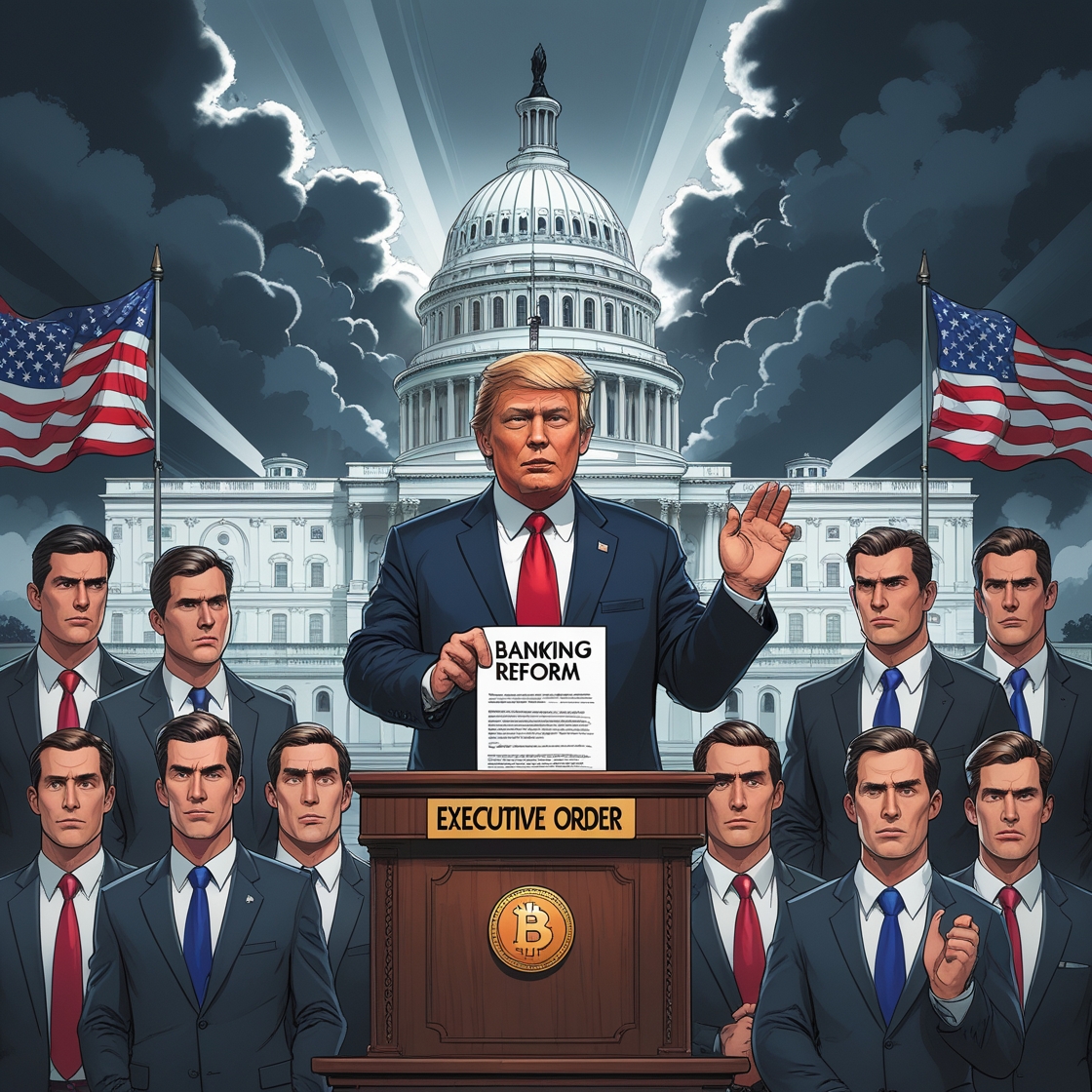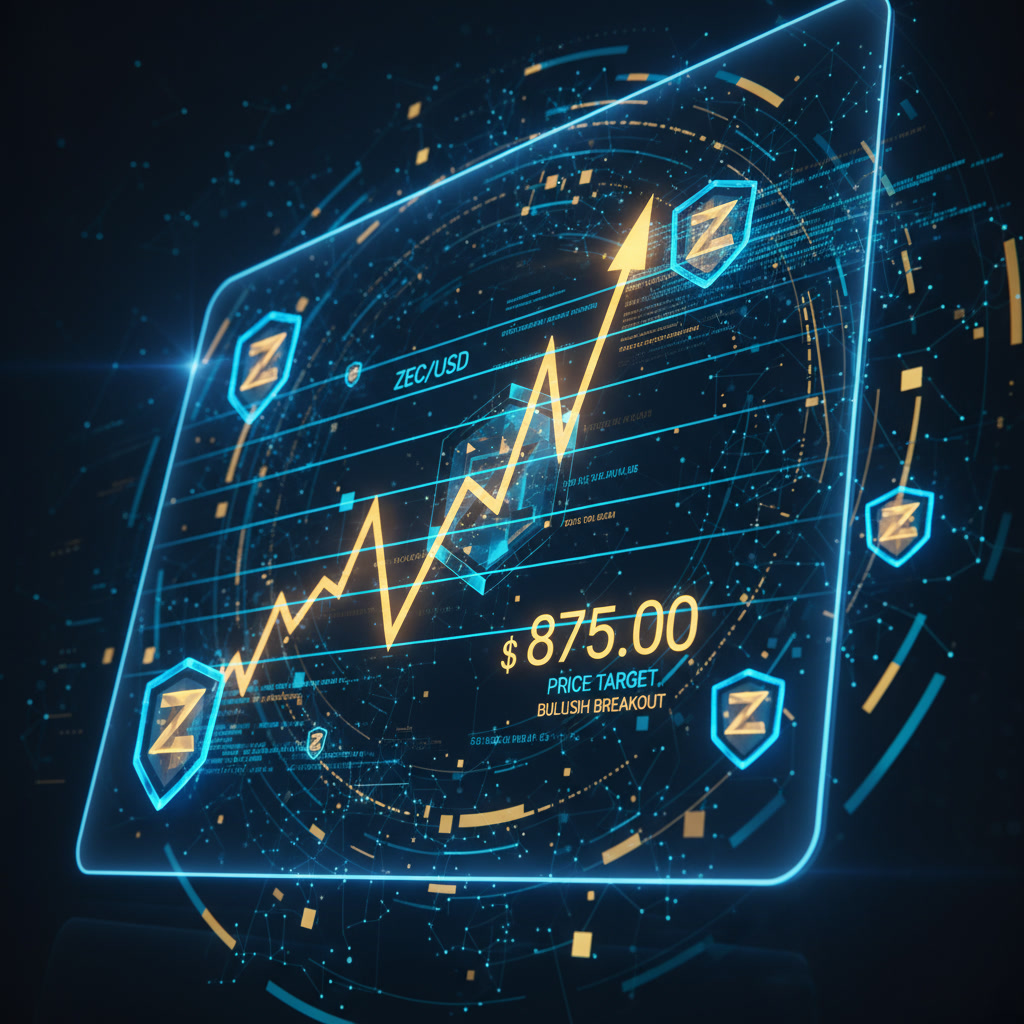In a surprising development that could reshape the relationship between financial institutions and emerging sectors like cryptocurrency, a new report by the Wall Street Journal (WSJ) reveals that former U.S. President Donald Trump is preparing a draft executive order (EO) aimed at disciplining banks for alleged political and crypto-related discrimination. The move, if enacted, would mark a significant policy shift, underscoring the Trump administration’s increasing alignment with conservative and crypto-centric interests.
A Preemptive Strike Against “De-Banking”
According to the WSJ report, the draft EO warns regulatory agencies and banks that any discriminatory actions—particularly against conservative individuals or cryptocurrency firms—could result in monetary penalties, consent orders, or other disciplinary measures. The practice of “de-banking,” a term used to describe the abrupt or unjustified denial of banking services, has increasingly become a contentious topic. It’s often cited by conservative figures and crypto advocates who claim they are being unfairly excluded from the financial system.
The order would reportedly direct banking regulators such as the Office of the Comptroller of the Currency (OCC) and the Federal Deposit Insurance Corporation (FDIC) to open investigations into institutions found to be engaged in such biased practices.
Political Overtones and Crypto Advocacy
The intersection of politics and finance is nothing new, but this draft EO draws a bold line. It seeks to address a perceived systemic issue—where banks may be treating clients differently based on political ideology or involvement in the crypto space. This comes in the context of growing concerns among conservatives and digital asset supporters that mainstream financial institutions, under the guise of risk management or regulatory compliance, are selectively targeting them.
Notably, the WSJ’s authors, Dylan Tokar and Alexander Saeedy, took a cautious approach in describing the alleged discrimination, using language such as “so-called” and “perceived” throughout the piece. This reflects the ongoing debate about the legitimacy and scale of these claims, which remain difficult to quantify but potent in political discourse.
Regulatory Climate Shifts
The timing of the leaked draft is significant. Just two months prior, U.S. banking regulators had greenlighted the expansion of crypto-related services. The OCC released updated guidance that allows banks to custody crypto assets and offer other digital finance services. The FDIC, likewise, adjusted its framework to better align with the digital asset ecosystem. These changes hinted at a regulatory thaw toward cryptocurrencies—yet concerns remain among crypto firms that banks are still reluctant to engage due to reputational and regulatory fears.
The reported EO seeks to cement protections for these firms by establishing accountability for any bank that engages in targeted exclusion. It’s seen by some as a continuation of Trump’s broader populist and deregulatory agenda, this time in support of what he views as politically marginalized sectors of the economy.
Skepticism and Speculation
Despite the bold claims made in the report, the EO remains unconfirmed. WSJ itself admits it has relied heavily on unnamed sources, described only as “people familiar with the matter.” These sources reportedly stated that the order could be signed within days, although they also acknowledged the timeline could shift.
Without formal documentation or official confirmation from Trump’s team, the entire matter remains speculative. The language used in the WSJ article appears deliberately cautious, leaving room for multiple interpretations and raising questions about whether the EO exists in the form described—or at all.
Broader Implications
If enacted, the draft executive order would be unprecedented in its targeting of banking discrimination tied specifically to political ideology and industry affiliation. It could embolden crypto firms and conservative groups who have long claimed financial censorship and could also put pressure on regulators to walk a fine line between risk management and perceived political neutrality.
Such a move would almost certainly be met with legal and political resistance. Critics would likely argue that the EO interferes with the independent judgment of financial institutions, potentially exposing them to undue political influence. Meanwhile, supporters would hail it as a necessary check against ideological bias within America’s financial system.
Conclusion
While still unconfirmed, the reported draft executive order from Donald Trump has already sparked conversations about fairness, political bias, and the future of crypto in the U.S. financial landscape. Whether or not the order materializes, it signals an increasing willingness among political leaders to confront what they view as systemic discrimination within the financial sector—especially when it comes to crypto and conservative voices. The next few days could determine whether this story is a pivotal moment in banking reform or merely a speculative footnote in the ongoing culture wars.
Ready to start your cryptocurrency journey?
If you’re interested in exploring the world of crypto trading, here are some trusted platforms where you can create an account:
- Binance – The world’s largest cryptocurrency exchange by volume.
- Bybit – A top choice for derivatives trading with an intuitive interface.
- OKX – A comprehensive platform featuring spot, futures, DeFi, and a powerful Web3 wallet.
- KuCoin – Known for its vast selection of altcoins and user-friendly mobile app.
These platforms offer innovative features and a secure environment for trading and learning about cryptocurrencies. Join today and start exploring the opportunities in this exciting space!

Join our crypto community for news, discussions, and market updates: CryptoBCC on Telegram.

Disclaimer: Always do your own research (DYOR) and ensure you understand the risks before making any financial decisions.




